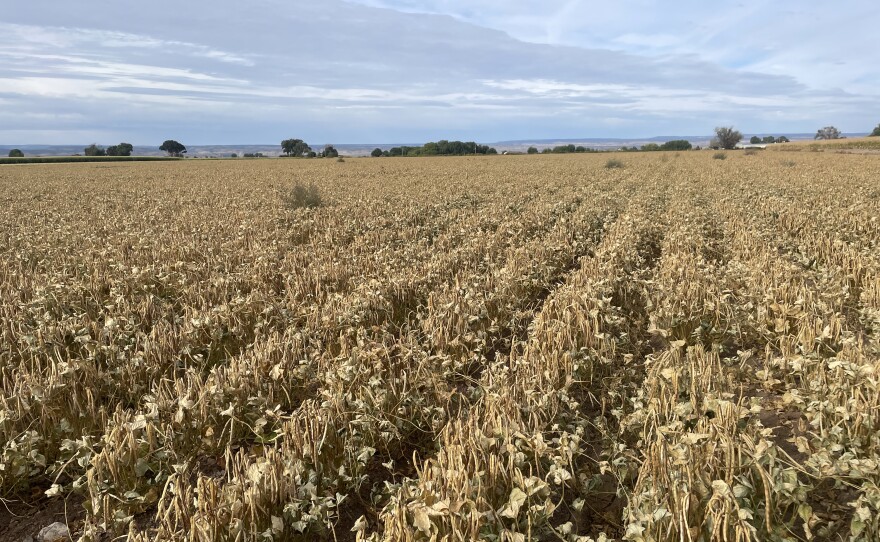Black eyed peas could replace water thirsty crops on the Western Slope. That's the hope of Srinivassa Pinnamaneni, Ph. D, at Colorado State University's College of Agricultural Sciences in Fruita, Colorado.
Pinnamaneni, said the project was initiated in his brain after seeing the decrease in pinto beans in the state. He said in the last three decades the crop has decreased from almost 300,000 acres to currently 25,000 acres in Colorado. He said most farmers have replaced pinto beans with corn, in part due, to more pests and diseases plaguing the bean crops.
"We want to introduce a new crop that saves water at the same time increases on farm returns and also take care of soil health. So the crop that came into my mind is black eyed peas. They have same duration, like 85 to 95 duration like pinto beans. And you farmers need not change any machinery for growing black eyed peas," said Pinnamaneni.
Prior to the pilot program on the Western Slope, Pinnamaneni reached out to Trinidad Benham in Nebraska for a contract on the black eyed peas raised by Mike Ahlberg of Delta, Colorado.
"I went there to Gering, Nebraska to get the seeds and this spring I gave them to Mike Ahlberg, who planted them on Memorial Day and harvested on 13th of September."
The researcher said Ahlberg's pinto beans yielded around 30 hundred weight while the black eyed peas, they gave 25 hundred weight. He also noted that the current price of pinto beans nationally is $28 dollars to anywhere between $24 to $28 dollars per hundredweight. Trinidad Benham Corporation has made a contract with Ahlberg to buy the black eyed peas at $49 nine dollars per hundredweight.
"Luckily, they are trying to send the semi this week to ship these beautiful peas back to their processing plant at Sterling, Colorado," Pinnamaneni said.
He said next year the Colorado Department of Agriculture will once again fund the project that could improve both soil health and save water.
"My job is to quantify the amount of water consumed by black eyed peas compared to pintos. I will be doing next year with the help of Mike. So we want to study in that project whether we will be spraying the nutrients with the help of the drone or some of the area, some area without. And we will be seeing the impact of the micronutrients on the productivity of a black eyed peas."
He said CSU is looking to scale up the production of the crop in Western Colorado but said producers interested should have a prior contract with Trinidad Benham or other companies on the Front Range.
"As of now it is similar to pinto beans. There are no issues of pests and diseases. I am really happy it is turning out to a good, good story, but it does not end at this moment. But we need to scale up and try to bring more legumes that saves water and improves soil health."






